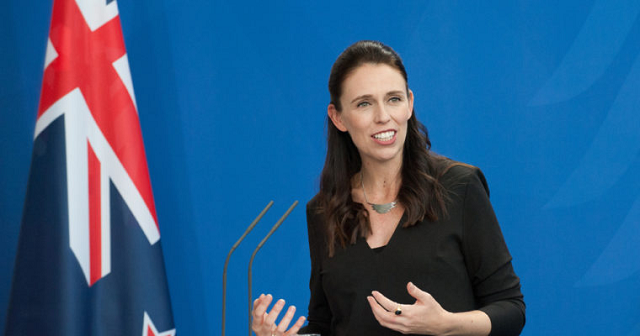New Zealand’s Prime Minister, Jacinda Ardern, is the latest high-profile individual to be used in perpetuating a cryptocurrency scam.
According to the Prime Minister’s office, various ads bearing her image have appeared on social media network Facebook with the intention of persuading citizens of the Asia Pacific country to invest in a cryptocurrency startup.
To add to the legitimacy, the ads also allege that the New Zealand Treasury has invested approximately NZ$250 million, or ‘50%’ of its currency reserves in a cryptocurrency firm known as Bitcoin Revolution, according to Stuff.
“The New Zealand Treasury has just invested half of its wealth into a new project which the government believes will shape the future of the financial industry. The New Zealand Treasury now looks set to take the world of blockchain technology by storm. On Saturday, they finalized a $250 million deal with The Bitcoin Revolution, saying that ‘the future of finance depends upon people having access to the best possible resources’,” read one of the ads before they were eventually deleted by Facebook.
New Fraud Plan
The ads which bore the headline ‘New Investment Plan for Kiwis’ targeted different demographic groups with some of them aimed at those aged between 30 and 45 while others were directed at those aged between 46 and 65.
Late last year, John Key, the immediate former Prime Minister of New Zealand, was also featured on ads that appeared on social media platforms and which claimed that an investment of NZ$1,000 he had made seven years prior had resulted in a NZ$300 million fortune.
Such cryptocurrency scams are a global epidemic, however, and are not restricted to New Zealand. Last month, for instance, the Monetary Authority of Singapore (MAS) was forced to issue a statement warning citizens over a fraudulent bitcoin investment scheme which purported to have been endorsed by the chairman of the MAS and Singapore’s Deputy Prime Minister, Tharman Shanmugaratnam.
Riding the Celebrity Bandwagon
In August the head of the Roman Catholic Church, Pope Francis, was also a victim of cryptocurrency scammers who used his image and person to promote a fraudulent bitcoin giveaway on social media. During the same month, the Twitter account belonging to the co-founder and CEO of electric car maker Tesla, Elon Musk, was momentarily hacked and used to promote a bitcoin and ethereum giveaway scam to followers of the tech billionaire.
Other high-profile figures who have been impersonated include the co-founder of ethereum Vitalik Buterin, Hollywood actor William Shatner, tech entrepreneur and cryptocurrency evangelist John McAfee, and the founder and chairman of Virgin Group, Sir Richard Branson.













